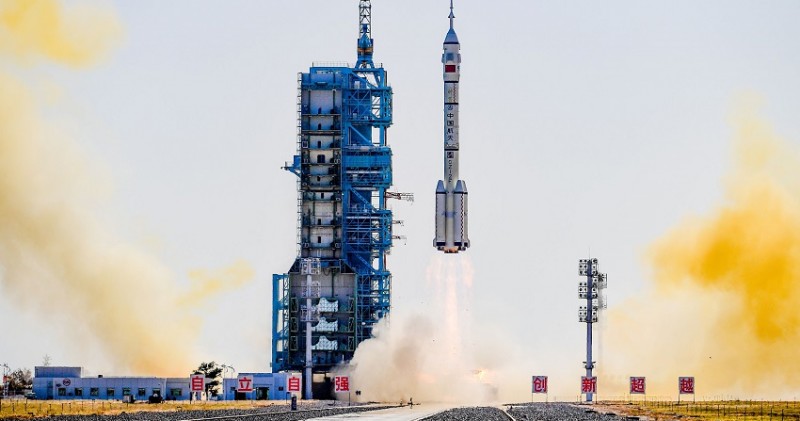
CHINA: Xianqiao village in Guizhou province, China, experienced a startling event on Saturday when debris from a Chinese rocket fell over the area, raising alarms about safety. Videos shared widely on Chinese social media captured the moment, showing a cylindrical piece of debris descending and crashing near a hill, emitting yellow smoke.
The incident occurred shortly after a Long March 2C carrier rocket launched from the Xichang Satellite Launch Center in Sichuan province. This rocket was carrying the Space Variable Objects Monitor (SVOM) satellite, part of a collaborative mission between China and France to study gamma-ray bursts.
Under the direction of Chinese President Xi Jinping, China has been aggressively advancing its space program to bolster its standing as a major player in space exploration, competing notably with the United States.
The China Aerospace Science and Technology Corporation (CASC), the state-owned entity responsible for developing the Long March 2C rocket, hailed the launch as a "complete success."
Witnesses in Xianqiao village reported hearing a loud explosion upon impact and observed the rocket debris firsthand. Experts identified the debris as likely originating from the first-stage booster of the Long March 2C rocket, which uses hazardous propellants known for their toxicity and carcinogenic properties, posing potential health hazards.
Rocket expert Markus Schiller noted that such incidents are not uncommon in China due to the positioning of its inland launch sites. Rockets are typically launched eastward to capitalize on Earth's rotation for added thrust, often passing over villages along the trajectory of the booster during initial flight stages.
China operates several inland launch sites, including Xichang in the southwest, Jiuquan in the northwest Gobi Desert, and Taiyuan in the north. These sites were established during the Cold War for security reasons, situated away from coastal areas.
In contrast, NASA and the European Space Agency prefer coastal launch sites with trajectories directed over open ocean, minimizing risks to populated areas from falling debris.
Previous incidents of rocket debris landing in villages in China have raised ongoing concerns about mission safety and debris management practices. The international space community has criticized China for its handling of debris from uncontrolled rocket boosters re-entering Earth's atmosphere. In 2021, NASA condemned China for failing to adhere to responsible standards after debris from a Long March 5B rocket crashed into the Indian Ocean west of the Maldives.
The recent incident underscores the urgent need for enhanced safety protocols and practices surrounding China's space missions. It highlights the imperative to safeguard residents and the environment from the potential risks associated with rocket launches and falling debris.
China's Chang'e-6 Probe Returns with Moon Samples, Historic Mission Nears End
China and Nigeria Forge New Ties in Beijing Talks and Committee Meeting
China-Australia Forge Closer Ties with Extended Visa Agreement